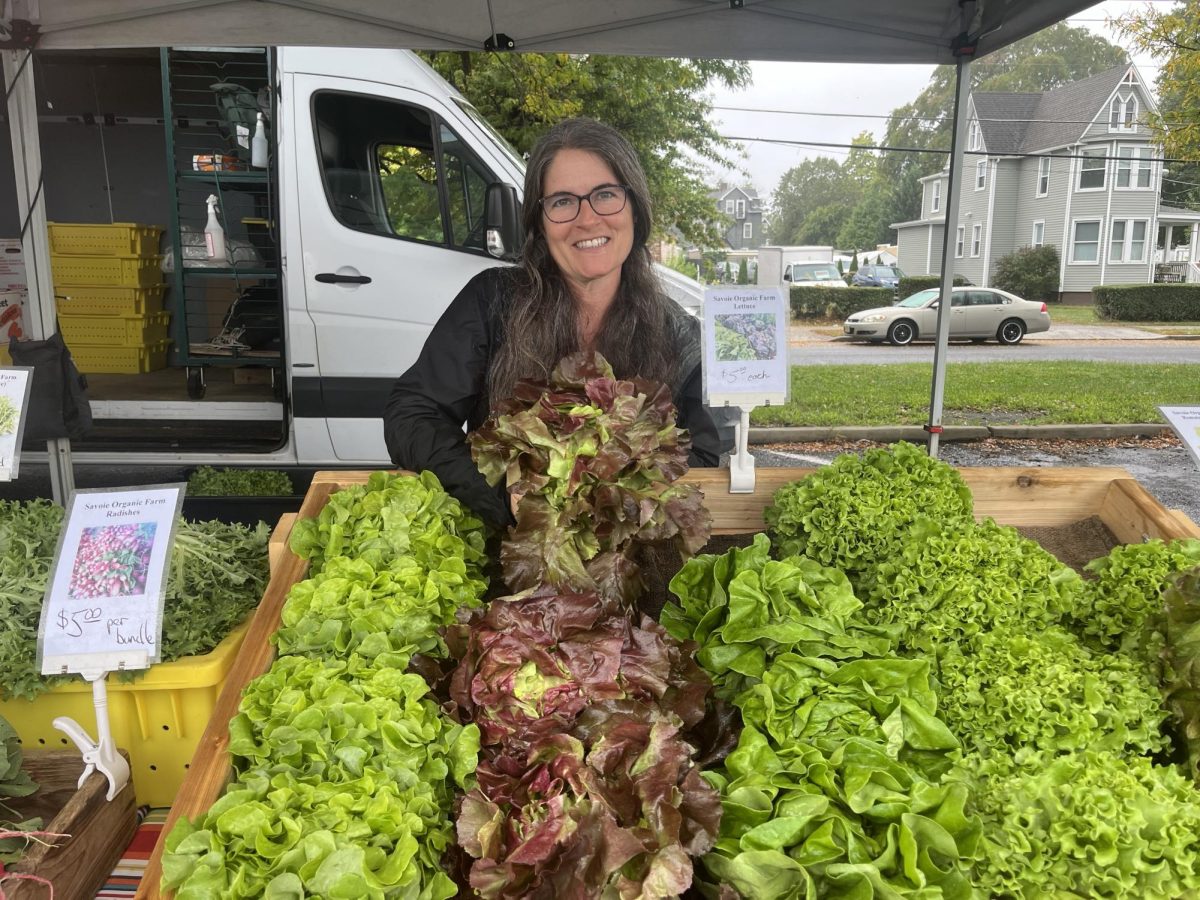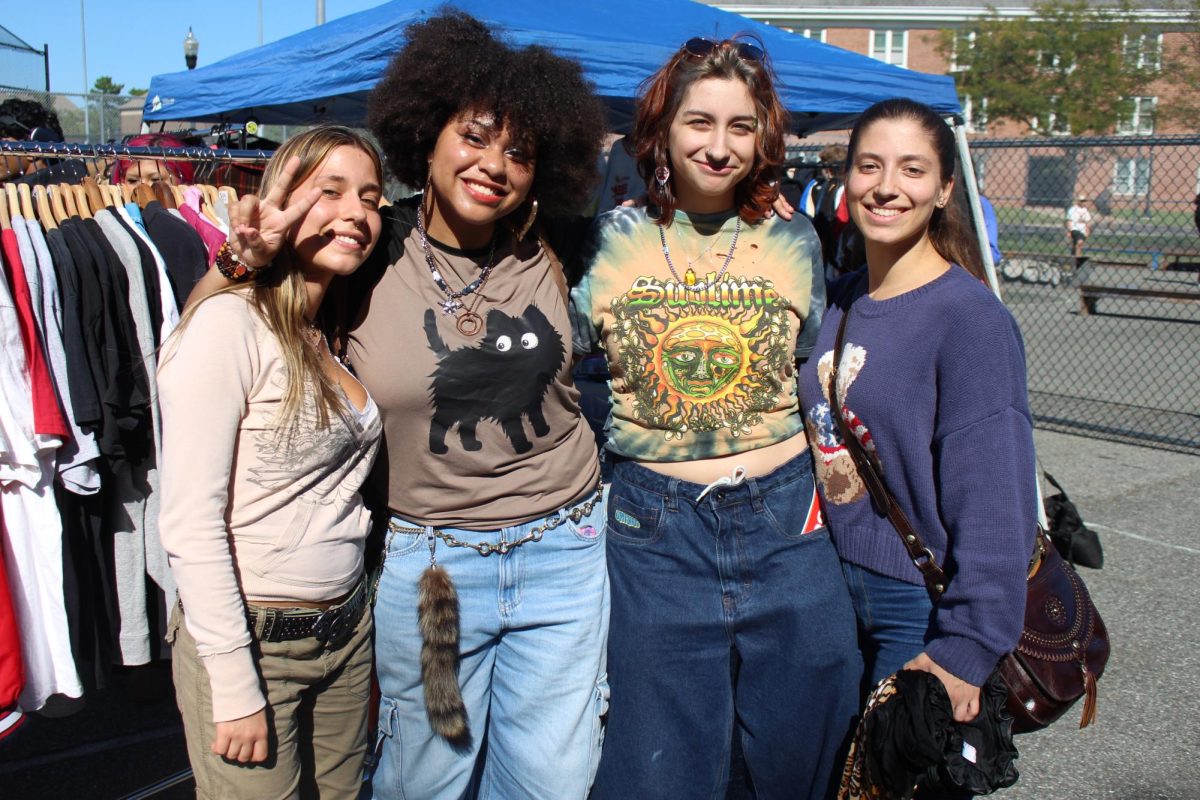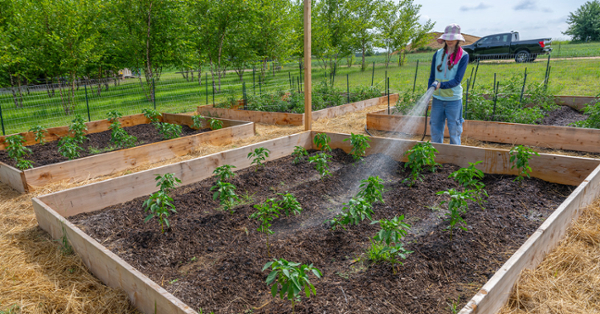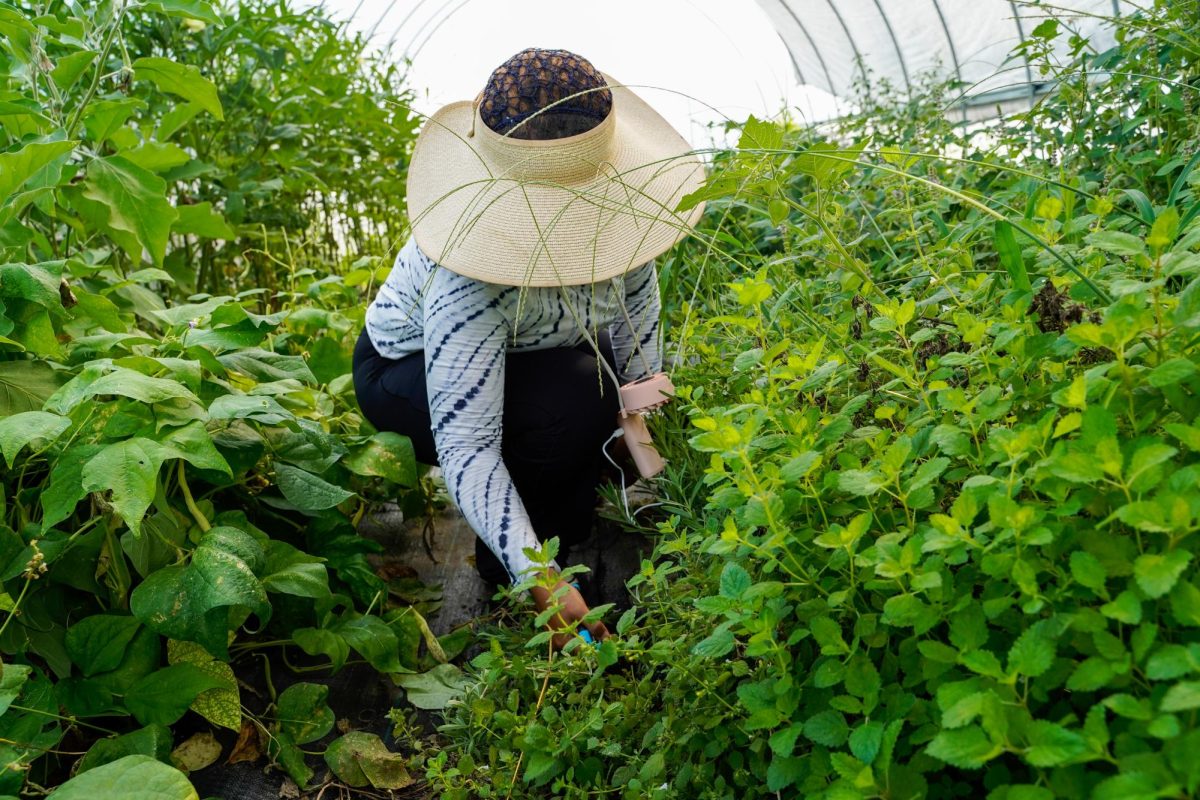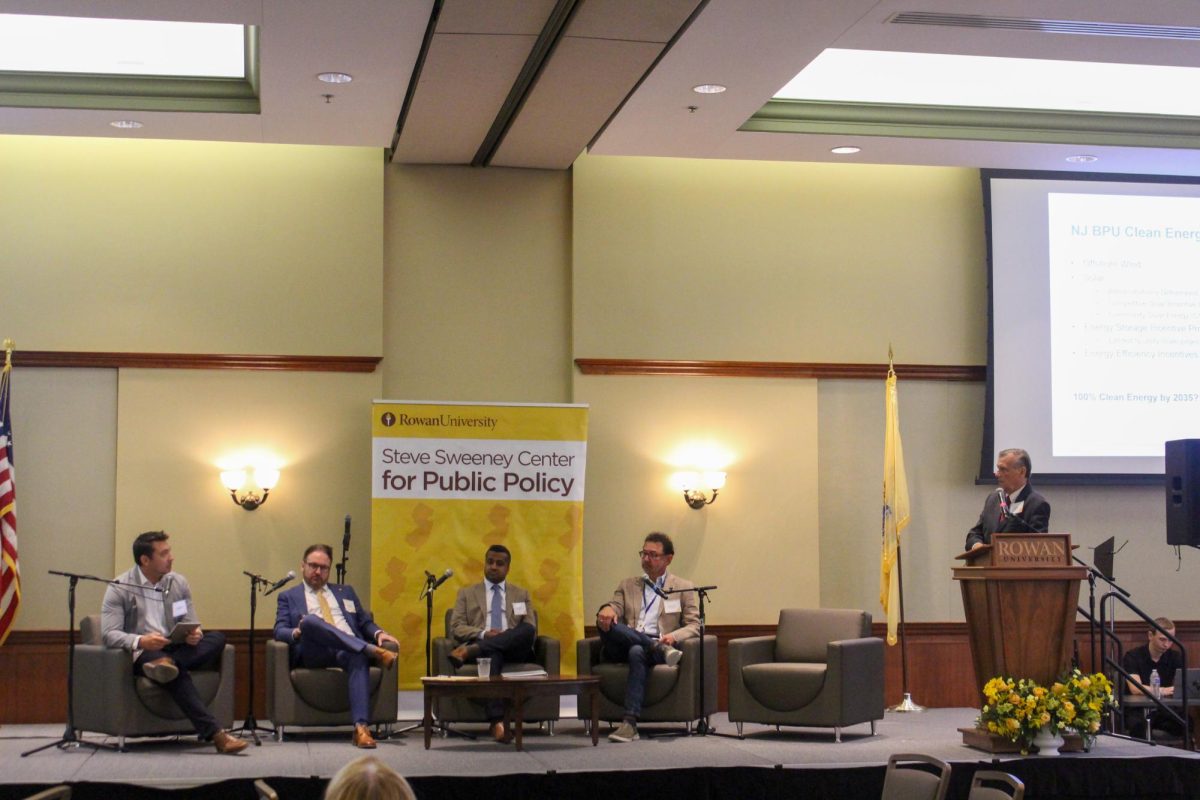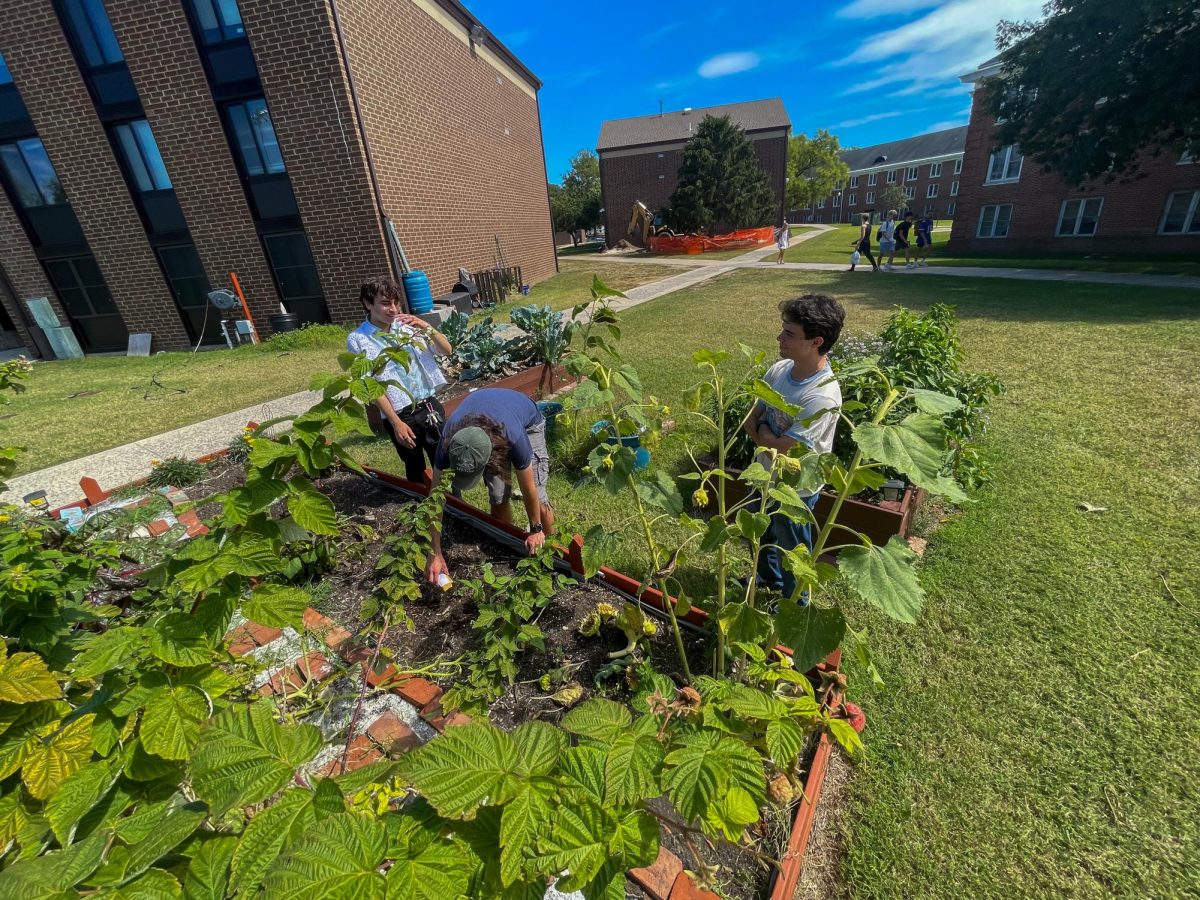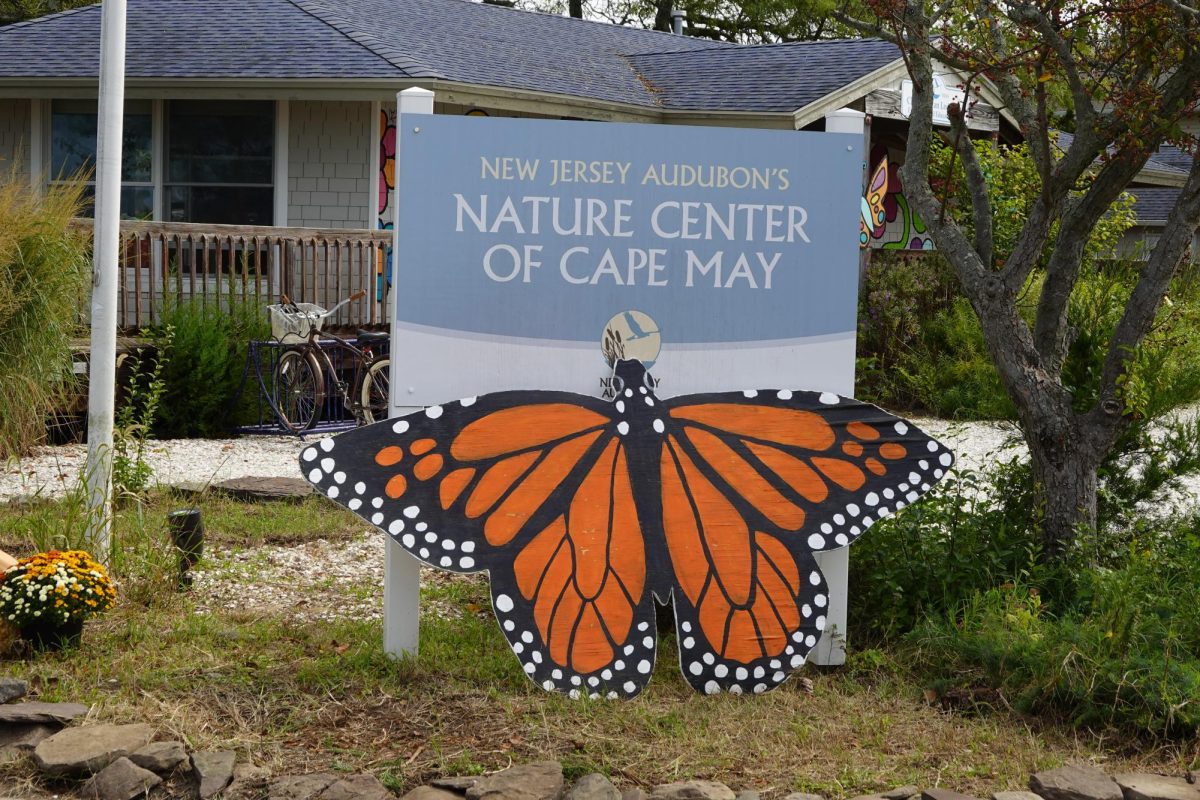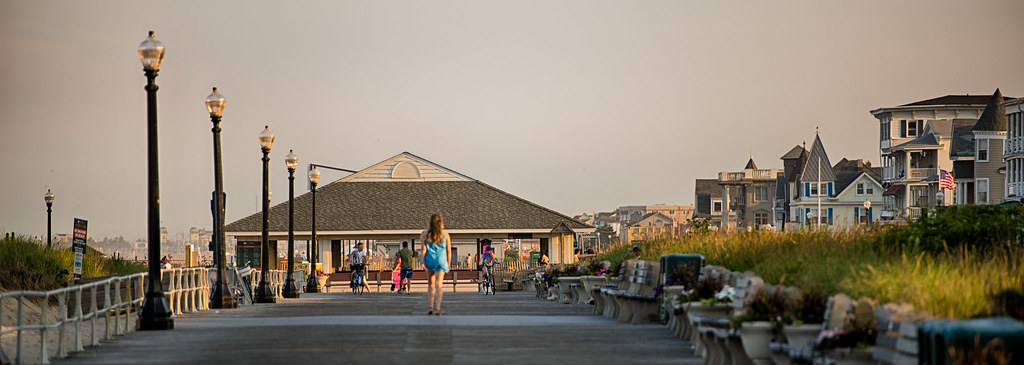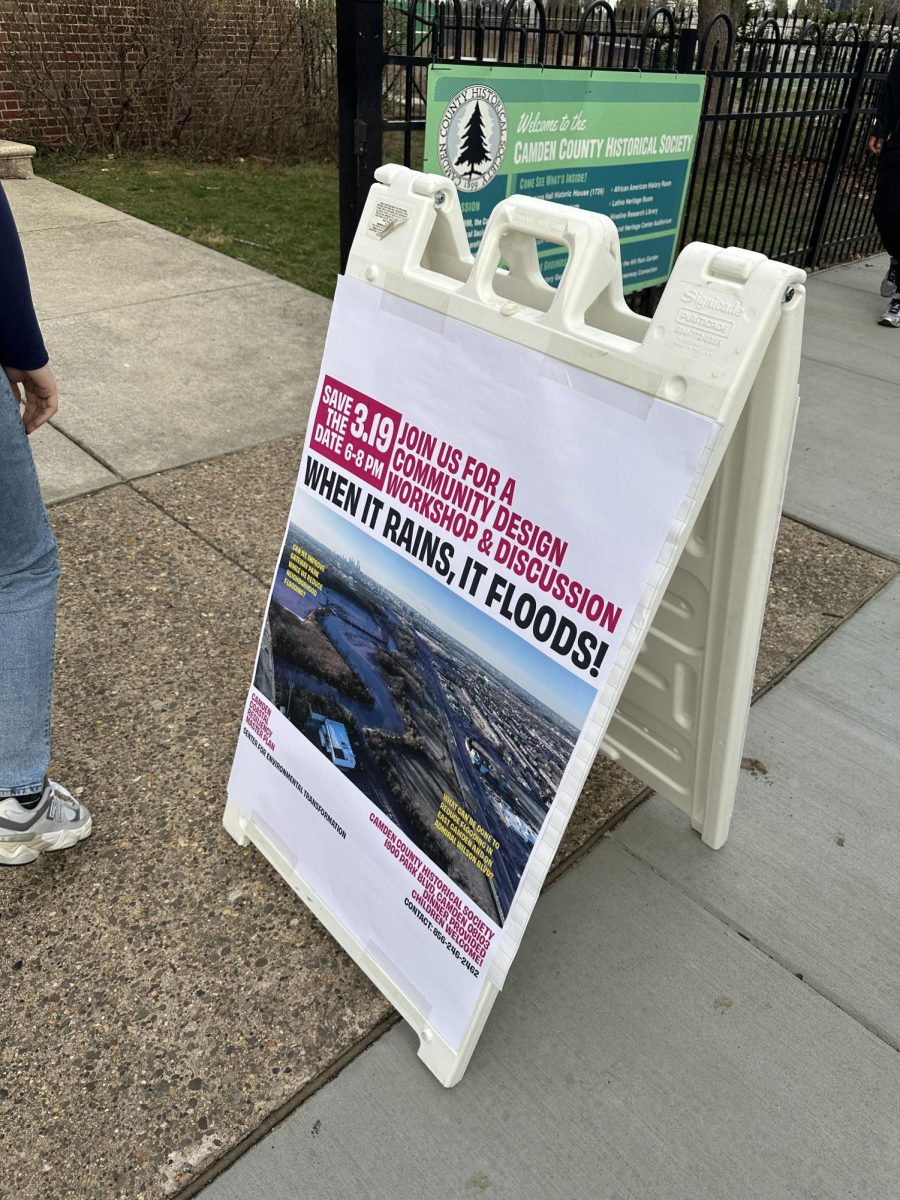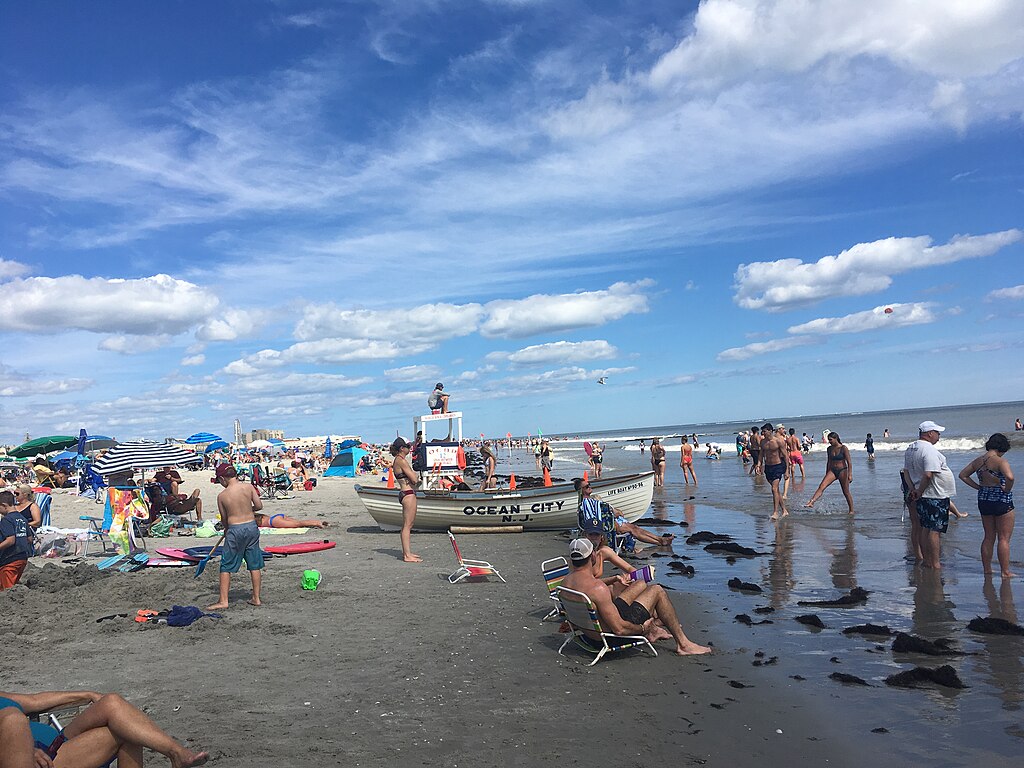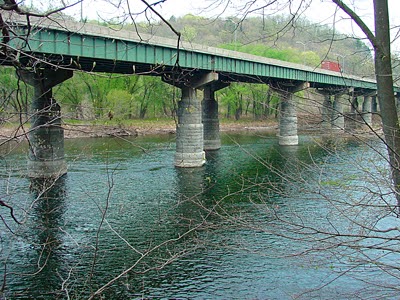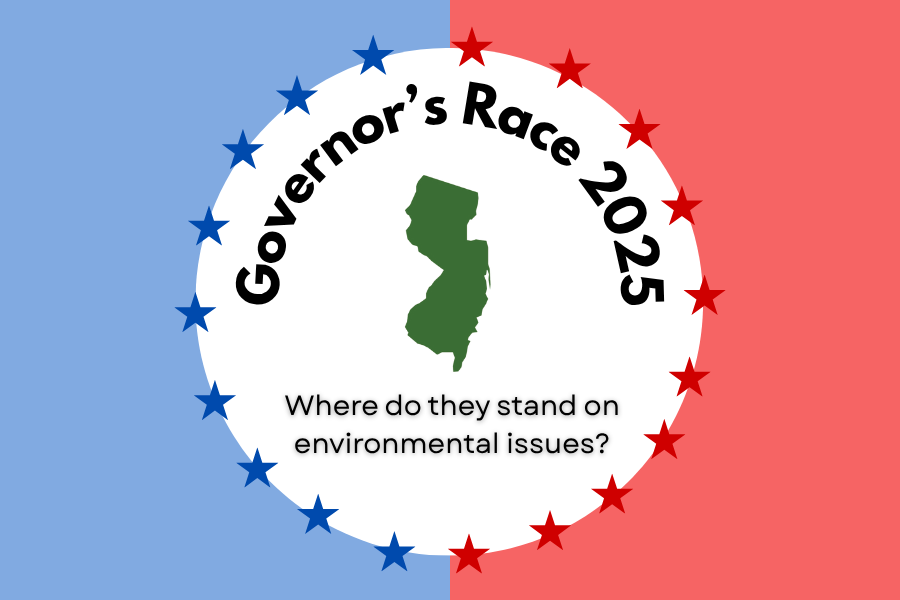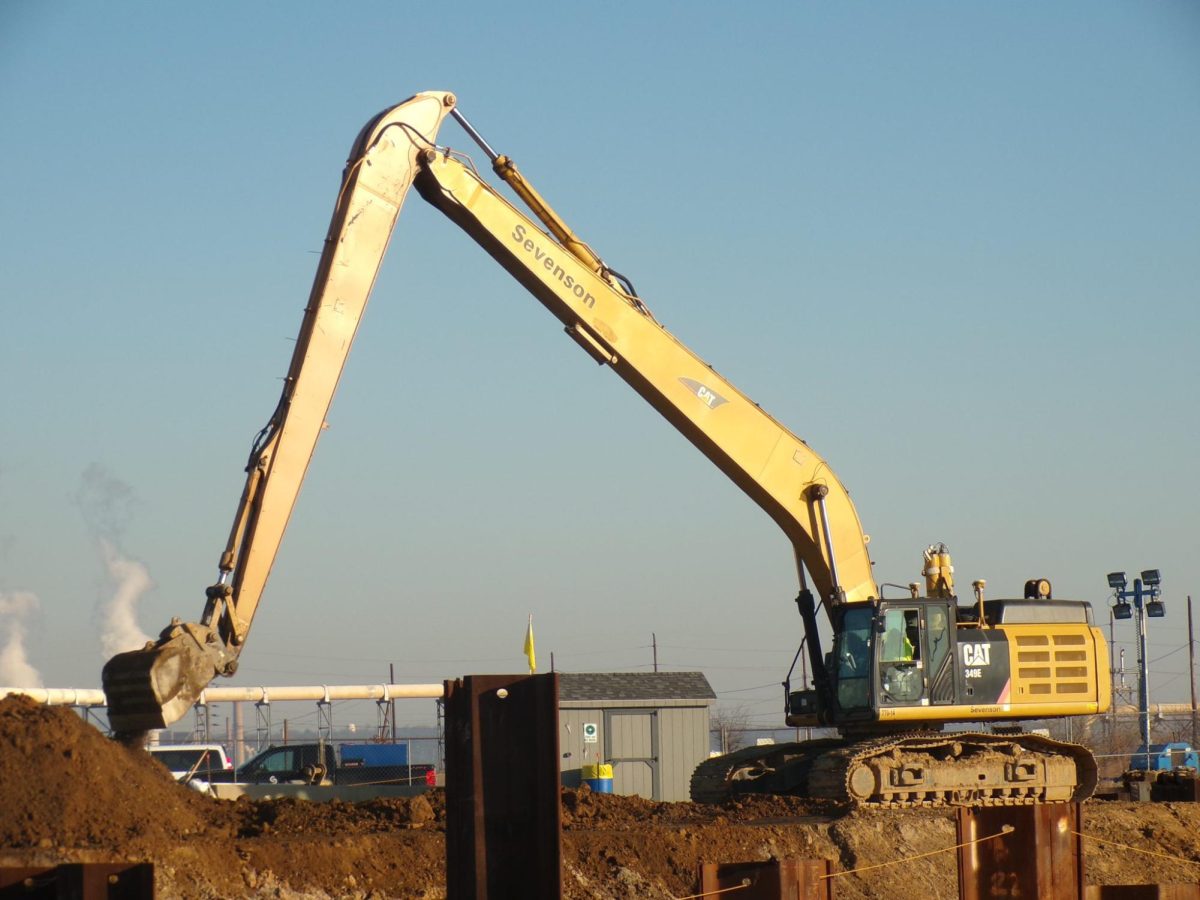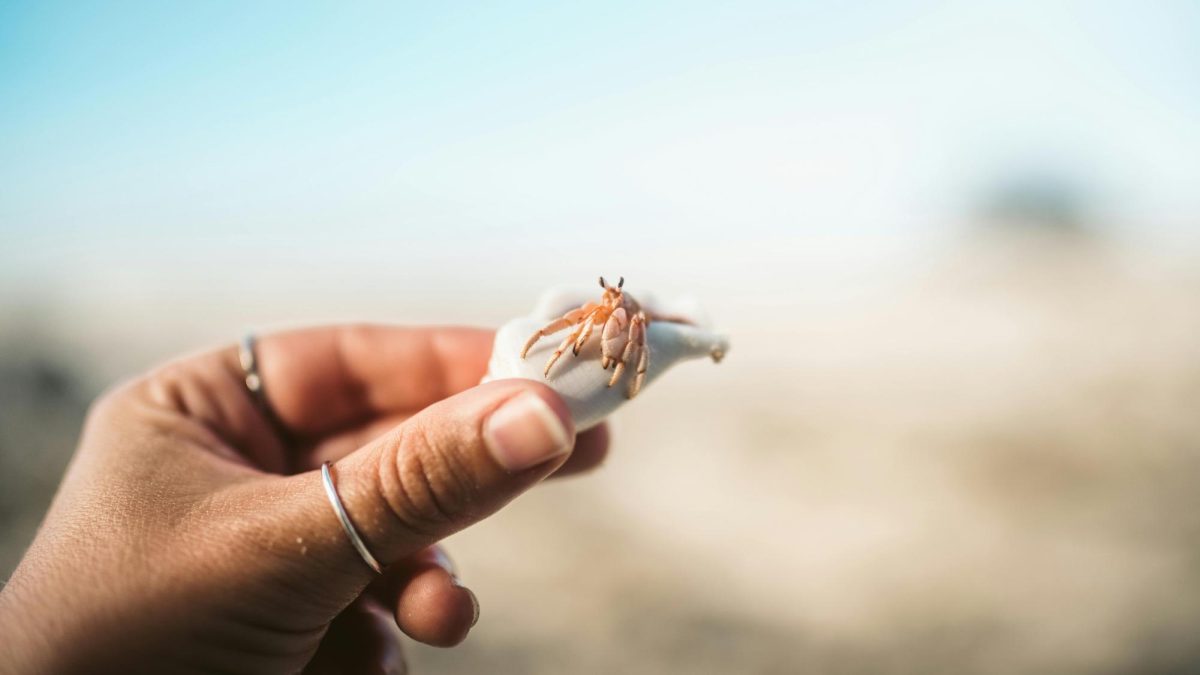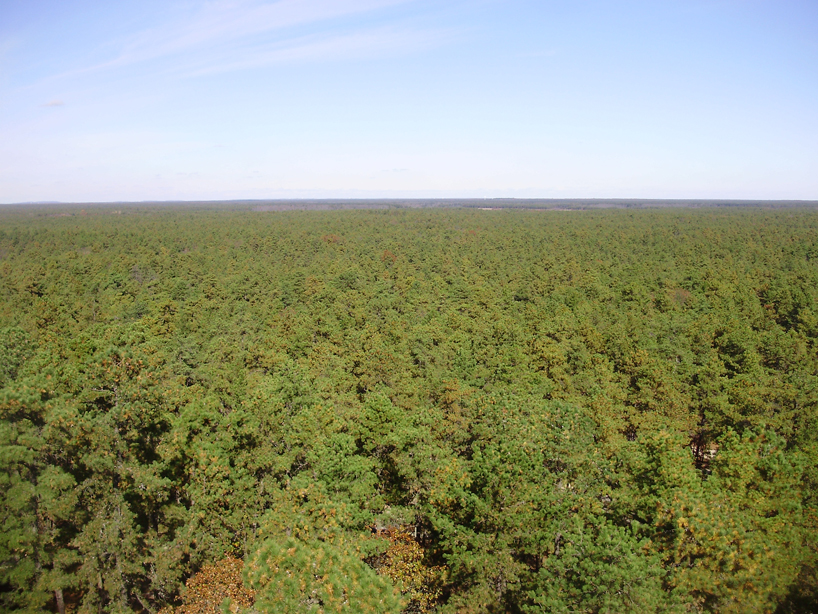Carol Di Meo is an organic farmer and co-owner with Barry Savoie of Williamstown’s Savoie Organic Farm.
Savoie sells organic lettuce (one of the most popular items, according to Di Meo), radishes, tomatoes, garlic, and herbs, according to the farm’s website.
Selling produce in New York City, Philadelphia, and South Jersey, including at the Collingswood Farmers Market, Savoie is one of a handful of farmers that markets itself as organic, and one of an even smaller handful of farms that is certified organic in New Jersey.
Out of 9,998 farms in the state, only 81 are certified organic by the United States Department of Agriculture (USDA). That means a tiny 0.81% of NJ farms are certified to sell products with the label “organic.”
According to Britannica, organic foods are “grown without the use of synthetic chemicals…and does not contain genetically modified organisms (GMOs).”
“Everything has to be au naturel, the way our grandparents and great grandparents used to grow,” Di Meo said.
Farming organic also generally has a lot of benefits, including, but not limited to: healthier soil, a smaller carbon footprint, and less chemicals to ingest for consumers.
The organic philosophy is also important for plant health and hardiness.
Scarcity of organic farms in New Jersey
So why are there so few certified organic farms?
The simple answer is that certification is a slow process that requires large commitment.
“In order to be truly resilient and climate adapted…it does take time, it does take effort, it does take an investment of resources into your farm,” said Devin Cornia, executive director of the Northeast Organic Farm Association of New Jersey (NOFA-NJ).
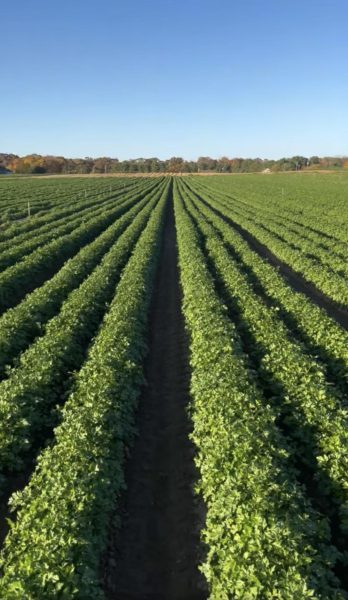
NOFA-NJ supports farms throughout the state with programs including grants, courses, and technical assistance. A large chunk of the farms NOFA-NJ supports aren’t certified.
Investments in organic certification include a 36-month transition period and rigorous inspections and paperwork, which can be a lot on small farms.
“There’s little aspects that are like, you know, to the average person would be like splitting hairs,” Di Meo said.
Some farms don’t have the resources, time, or money to certify organic when it’s hard enough to farm.
“It’s a shame because I do believe that most farmers, I’m speaking farmers in general, want to improve their land
They want to ensure that they have a sustainable farm, a healthy income for years and years to come,” Cornia said.
Some farms use traditional and organic practices
There are ways, however, to utilize organic practices without becoming a fully organic farm. Some farms, like Marolda Farms in Vineland, have a mix of conventional and organic practices and products.
Richard Marolda Jr., who runs the Rock and Roll Organics label out of Marolda farms, saw an opportunity in 2008 to start the label.
“I saw a market trend,” Marolda said. “It was the right thing to get into at the time.”
Marolda Farms has been expanding its organic acreage ever since, and is even implementing organic practices to its conventional space. This includes learning how to grow crops without the use of chemical fertilizers and pesticides.
“A lot of the organic practices I’ve found to be more beneficial and efficient than conventional practices,” Marolda said.
However, the farm is still a split between organic and conventional, which is “more efficient,” according to Marolda.
Meanwhile, Savoie Organic Farm has been certified organic since 2007, first with the New Jersey Department of Agriculture, and later with NOFA New York. Di Meo found that going organic has had huge benefits.
“When we do our soil samples every year we find that over the course of these 20 years we’ve been farming our soil we’re actually seeing the organic matter levels rise,” Di Meo said. “Building that soil health is a huge part of it.”
With all the good things that farming organically can bring, there are downsides.
“When you’re a small farm like ours, you know, you can’t feed masses of people,” Di Meo said.
The average certified acres a farm has, according to the Organic Integrity Database, is around 142 (this doesn’t include farms that reported zero certified organic acres). New Jersey farms themselves have an average acreage of 71, according to the USDA census.
So organic acreage is generally a little more than the average of all farms in NJ, but this is still smaller than the average size for the country, which is 463 acres.
“I feel like, you know, for so many generations, conventional has been the way to feed a mass of people,” Di Meo said, “So when you say sustainability, I always think too, ‘Okay, well, what’s the bottom line? How do we feed the world?’”
Marolda had similar thoughts when visiting Fresno, Calif. and seeing a valley with “organic carrots for miles.”
“How do you compete with that as a 200-acre farm?” Marolda said.
It’s difficult for small farmers to compete in the same markets that large company farms can, especially if they’re organic.
According to Morning Ag Clips, in 2023, organic food was estimated to cost around 21% more than conventional food. This makes it difficult for consumers to spend more cash on food, and therefore, it’s more difficult for farmers to make the money they need to.
There is also difficulty for farmers to invest and learn about growing certain types of organic crops.
Marolda has been learning to grow organic peppers, which are susceptible to challenging conditions. For crops like the peppers, he is still “learning how to grow in a reliable way.”
Consumer interest
Consumers do seem to be interested in buying organic. The market is growing, and there are a few ideas as to why.
The certification and label of “organic” can be a draw for people. Kaitlin Cleary, a first-time patron of Savoie Organic Farm, noticed that it was one of the organic farms at the market and that made her choose to purchase from it.
“Just don’t want the pesticides, don’t want to have to worry about that,” Cleary said.
Cornia believes as well that organic food has a draw for families.
“Organic food is booming and a lot of it’s due to young families, you know, parents that want to feed their children organic foods,” he said.
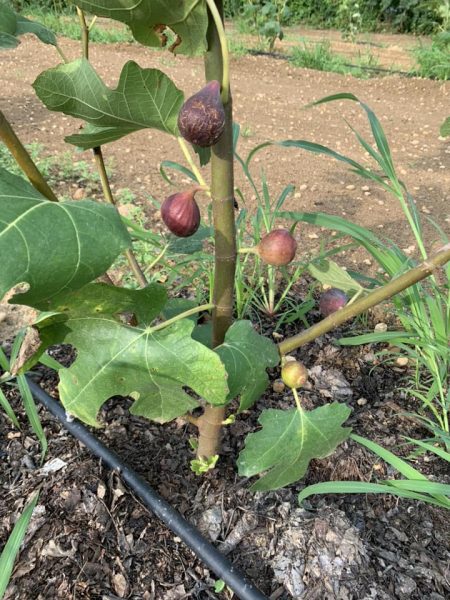
While it’s a big task, there are ideas to make organic farming better and more sustainable for the farmers, consumers, and environment.
Marolda brought up the Lancaster Farm Fresh Co-op, which is a network of small organic farms that help each other market and sell their produce. He believes something like that for New Jersey farmers can be beneficial.
“Being able to market together, distribute together would be the way,” Marolda said.
More support needed
Di Meo believes help from the USDA would be vital.
“I feel like if we have enough support from the large agricultural divisions like the USDA and things, maybe we could become a bigger portion of that pie,” Di Meo said, referring to being a larger market competitor.
Cornia, as head of NOFA-NJ, says that NOFA is a great resource for farmers, especially those who may not get much help otherwise.
“We are providing funding focusing on beginning and underserved farmers to help them implement climate smart practices on the farm,” he said. “We give them the funding upfront, we work hand in hand with them to provide them the support in developing the project and carrying it out.”
Also, implementing organic or otherwise sustainable practices can also be helpful for farmers. Savoie Organic Farm has a 20-kilowatt solar array that helps to power the farm and home.
“It’s not only organic, you’re doing your best to have a more sustainable impact in energy and everything,” Di Meo said.
With the organic market on the rise and farmers becoming interested in being a part of that market, it’s easy to think becoming certified organic is the only way to do that.
However, using organic practices to create healthier food and soil, and becoming more sustainable in big and small ways can be the starting point.
For consumers, if possible, buying local produce, even if it’s conventional, is more likely to be a sustainable and healthy option. It’s even better if one can buy directly from farms or farmers markets, like where Savoie Organic Farm sells.
“It’s [buying local] better for your health, it’s better for the environment’s health,” Cornia said. “If we really want to take a crack at climate, we have to think local, that’s above all else.”

